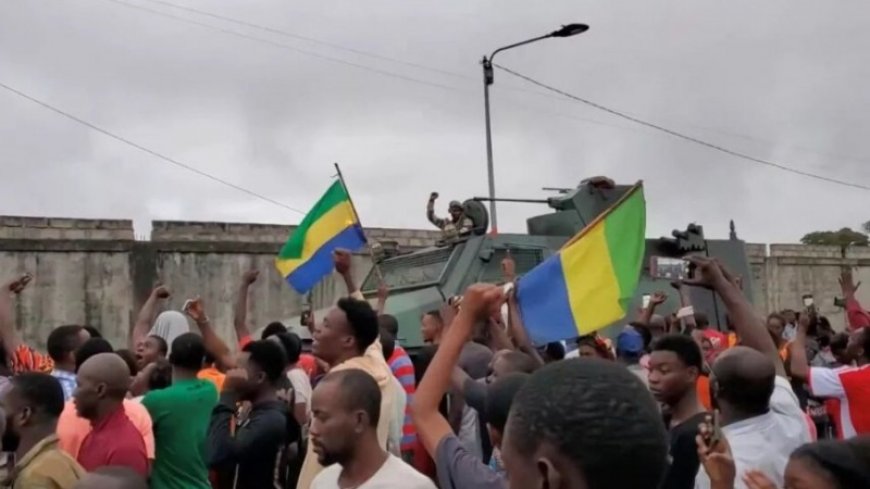International reaction to the arrest of the Gabon President
International reaction to the arrest of the Gabon President

Following the president's arrest, a group of soldiers in Gabon announced in a press statement the cancellation of elections, the dissolution of all state institutions and the cessation of all government activities, prompting reactions from some countries and individuals. On Wednesday, 10 senior Gabonese army officers appeared on the country's state television and read a statement called "Committee for the Transition and Return of Institutions" and announced that they had taken power in Gabon, removing the president and government. Gabonese army soldiers said they had closed the country's air and land borders until further notice. All government institutions have been dissolved and they take over the representation of all security and defense forces in Gabon.
The military also said it had canceled the country's recent presidential elections and their results. The coup in Gabon was the eighth coup in western and central Africa since 2020. Before the coup in Gabon, there was a coup in Niger on July 26th. For the first time in Gabon's history, elections for the presidency, assembly and local councils took place last Sunday amid strict security measures, internet shutdowns and curfews. Gabon's electoral center officially announced on Wednesday that Ali Bongo (64) won the presidential election for the third time with 64.27 percent of the vote, while his main rival Albert Ondo Osa came in second with 30.77 percent of the vote. Gabon is located in western Central Africa, in the Gulf of Guinea region and on the eastern coast of the Atlantic Ocean, and borders the countries of the Republic of Congo, Cameroon and Equatorial Guinea.
Gabon has been one of the French tropical colonies in Africa since 1886 and gained independence from France on August 17, 1960; Before the coup, the country was one of France's most important allies in Central Africa, ruled by President Ali Bongo since 2009. Gabon has huge reserves of uranium and supplies part of the fuel for nuclear power plants in European countries, especially France. The first reaction from senior French officials to the coup in Gabon came from French Prime Minister Elisabeth Borne, who said that Paris was closely monitoring developments in Gabon. Joseph Borrell Joseph Borrell, the head of the European Union's foreign policy department, expressing concern about developments in Gabon, said that if it is proven that a coup d'etat took place in this country, the entire African region will become unstable. In this regard, the Peace and Security Council of the European Union announced that the trio of Burundi, Senegal and Cameroon will hold an urgent meeting to analyze the situation in Gabon.
China also demanded that all parties in Gabon guarantee the security of Ali Bongo Ondimba, the West African country's president, after the coup and maintain national peace and stability. Wang Wenbin Chinese Foreign Ministry spokesman Wang Wenbin said: "We want all parties in Gabon to take into account the core interests of this country and its people, resolve differences through dialogue, and restore normal order as soon as possible." Ali Bongo The first appeal of Ali Bongo Ondimba, the 64-year-old president of Gabon, whose fate was unknown since the announcement of the coup by senior Gabonese army officers, when his family expressed ignorance of his fate after the military coup carried out by the people of his country, he asked to "raise hype."
Moussa Faki Today (Wednesday), the head of the African Union (AU) Commission, Moussa Faki, strongly condemned the attempted coup in Gabon and called it a “clear violation” of the organization’s principles. Issuing a press statement, Faki called on Gabon's national army and security forces to strictly follow the will of their republic. Organizers of the military coup showed on state television that ousted Gabonese President Ali Bongo was under house arrest and announced that one of his sons had been arrested on charges of "high treason."













































